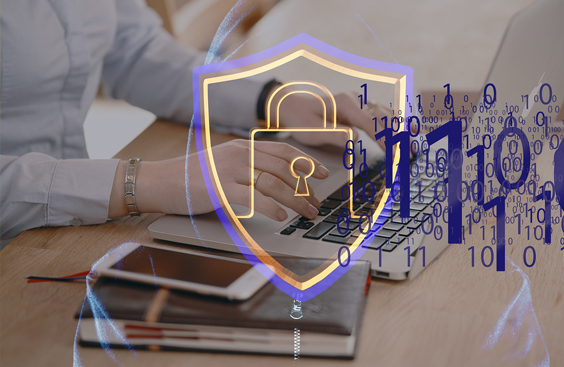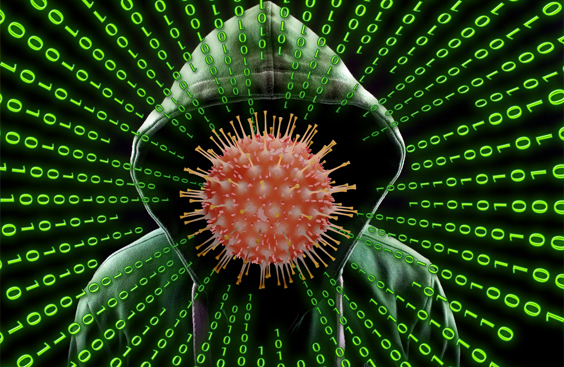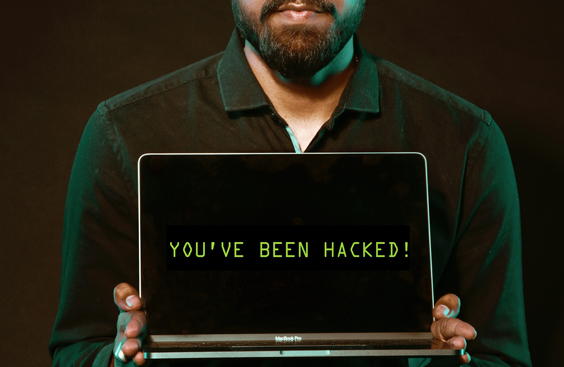Coronavirus: from the virus to online scams

Coronavirus as you well know, is a virus that attacks humans, it should have nothing to do with PCs.
However, looters and scammers have managed to exploit the fears of these times for fraudulent purposes.
So much so that the famous cyber security company Kaspersky had to issue an alert about the matter.
The threat in this case is hidden behind institutional emails that are supposed to be used exclusively for health purposes.
Spam and email scams about Coronavirus
The first report coming from Kaspersky is about a large amount of fraudulent emails sponsoring masks.
Thus exploiting people’s fear about Coronavirus infection, they suggest you buy special masks that protect against infection.
As you go deeper, you will realize that these are ordinary masks that are a few cents but sold at exorbitant costs, like $50 a piece.
It is important for you to know that these masks in no way protect against Coronavirus infection.
Hidden viruses inside institutional emails.
Another important warning you should keep in mind is the fake informational emails you may find delivered to your inbox.
These are fake government or institutional e-mails that have the false purpose of informing you, under the guise of showing you videos or infographics.
These emails may carry different types of documents as attachments (pdf, mp4, docx) and then induce you to click.
The result is an infection with Trojans, worms and ransomware of any kind.
Kaspersky so far has already found as many as 32 different types of scam emails posing as coronavirus information that can convey dangerous infections to your pc.
WHO’s Fake Coronavirus Email
Another alert also issued by the cyber security company Kaspersky, however, relates to the fake communication from the WHO.
The email in question simulates in every aspect a genuine, institutional email from the World Health Organization.

Should such an email reach you, you would be presented with the usual attachment that you would have to consult to follow the directions.
With the opening of the word document you would find yourself immediately infected with Downloader.MSOffice.Agent.gen.
It is obvious that in this case the specious use of WHO is used only to convince the victim that there is nothing malicious going on.
The swab email containing Emotet
Another massive sending of fraudulent emails exploiting covid-related fears has been detected by Kaspersky labs.
This time the deception theme is related to tampons and containing a dangerous virus, Emotet.
This virus is particularly dangerous because it can potentially empty your bank account. For this reason it has been classified as a banking virus.
So again the content of the email is artfully disguised in order to appear as authoritative as possible, a classic example of phishing.
SMS scams about self-isolation
Another, yet another scam that has been seen spreading in recent times is related to the sending of some SMS pretending to be from Swiss PT.
Swiss PT, for those who don’t know, is a Swiss entity for tracking contagions and is supposed to perform the similar function as Immuni here in italy.
The text message read, “A person you contacted has tested positive for coronavirus or has shown symptoms. You are urged to self-isolate.”
Following the SMS, there was then also a “for more information” link that would, however, actually lead you to infect the device.
This precise mode of scamming is called “smishing,” or phishing that starts via SMS.

How can I defend myself against these threats?
It is not easy, especially since antivirus software is often conveniently bypassed. Therefore, it is important to understand, to know, to acquire information in order to anticipate what may be a virus.
If you rely exclusively on antivirus as your only defense, you will be sure that sooner or later your pc or your entire company, will be compromised.
So you can find the solution by combining tricks that improve your protection and regular professional security updates.
In other words, if you invest a small budget to train your employees on security, you will certainly get more certainty for your business. An investment in the future of your data.
Among the tricks we would suggest instead, to provide more assurance and reduce potential risks, is to take all your company emails to the cloud, at services such as GMail.
If you liked the article and would like to learn more about how we offer our in-house courses, please do not hesitate to contact us.

